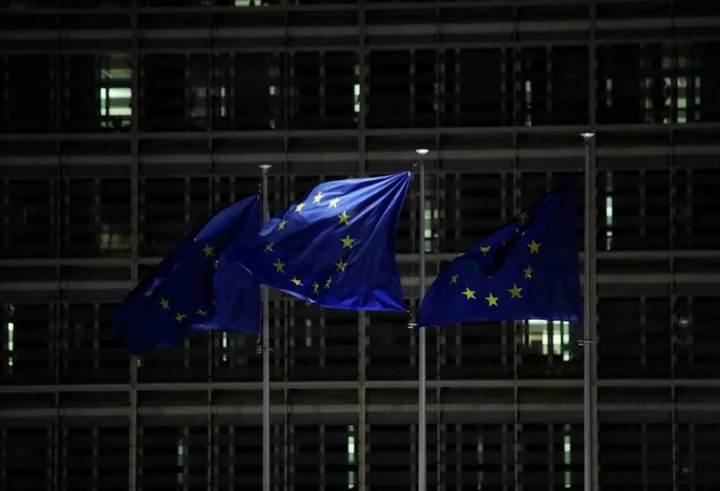By Philip Blenkinsop
BRUSSELS (Reuters) -The European Union executive presented on Tuesday its economic security plan which seeks to convince the bloc's 27 states to agree stronger controls on exports and outflows of technologies that could be put to military use by rivals like China.
The European Commission sees exporting and sharing emerging technologies like artificial intelligence and quantum computing as a potential security risk, as it could allow "countries of concern" to use them for military purposes.
The European Economic Security Strategy paper presented at a press conference in Brussels advocates stronger export controls and screening of outbound investments for a range of key technologies, confirming a draft seen by Reuters on Monday.
The document does not name China, but stresses partnering with like-minded countries and uses the phrase "de-risking", its policy of reducing economic reliance on China.
It also called on EU members for an extra 10 billion euros($10.9 billion) to help industry develop strategic technologies.
Its presentation marks the start of the commission's efforts to convince EU nations to back its proposals. EU leaders will hold a debate on relations with China at a summit in Brussels on July 29-30.
Nations though will be reluctant to relinquish their powers to grant export licences and weigh security interests.
"It's really now for the countries to step up," said Maria Demertzis, senior fellow at think-tank Bruegel. "But it's not clear whether there can be agreement. Coordination in security is very new."
A diplomat of one EU country said it would be a challenge to agree on what the risks were in the first place, let alone whether fresh measures were needed.
"Only then can we have a clear view of possible gaps that might require new instruments," the diplomat said.
Germany, which hosted Chinese Premier Li Qiang on Tuesday, is mulling a new, tougher China strategy, even though China is Germany's largest trading partner and a key market for German companies to export goods and procure materials.
The EU strategy document comes just after the United States, which has pressured the EU to adopt its firmer stance towards Beijing, sought to stabilise the intense rivalry during a rare visit to Beijing by U.S. Secretary of State Antony Blinken.
($1 = 0.9162 euros)
(Reporting by Philip Blenkinsop; Editing by Emma Rumney and Emelia Sithole-Matarise)









